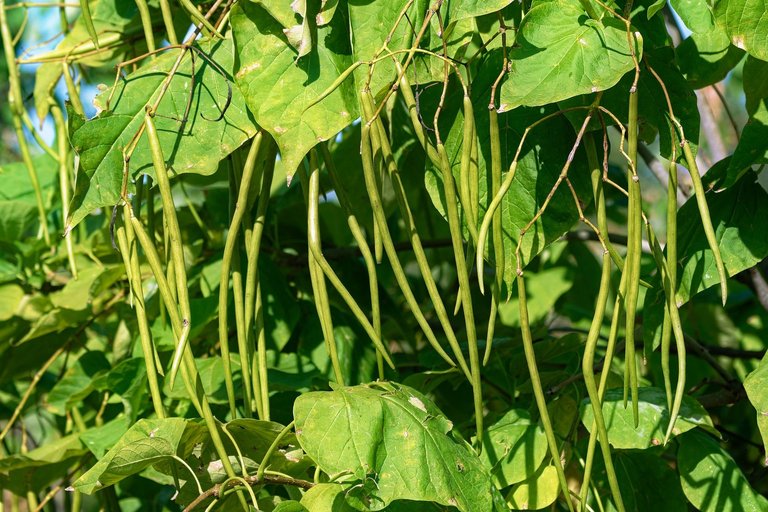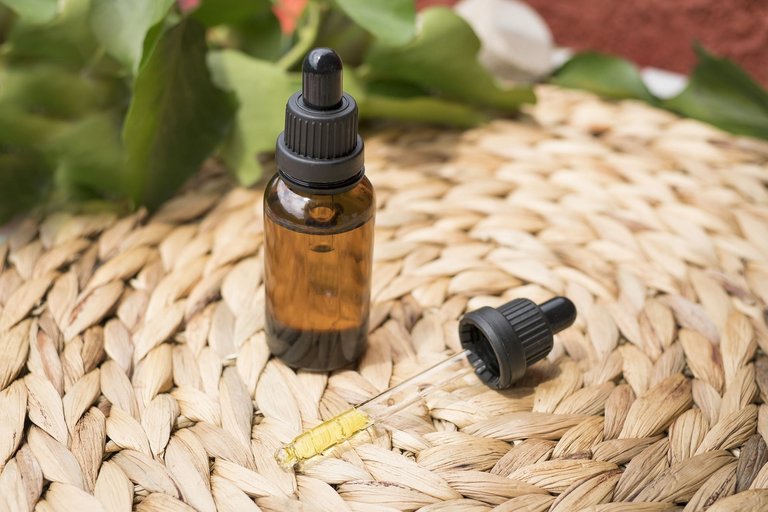Good morning everyone, today I would like to share with you my personal experience in using catalpa as a phytotherapeutic remedy.

Foto di Mircea Iancu da Pixabay
Description: deciduous tree.
Minimum cultivation temperature: -20 °C.
Balsamic period: October.
Toxicity: high, this plant is poisonous and is on the list of the Ministry of Health for use not permitted in the food supplement sector.
Confirmed activities: repellent and poisoning.
Active ingredients: catalpol.
PREPARATIONS
The extract obtained from the fruits has been used in the past for the treatment of asthma, however this use has been completely abandoned due to its high toxicity.
NOTES
Catalpol is responsible for the repellent effect on numerous insects due to its particular odor not perceived by humans. Furthermore, catalpa extract is a patented principle and particularly effective against mosquitoes, fleas, ticks and mites.
The shape of its fruits resembles Virginia cigars.
Buongiorno a tutti, oggi vorrei condividere con voi la mia esperienza personale nell'utilizzo della catalpa come rimedio fitoterapico.

Foto di Erin Stone da Pixabay
Descrizione: albero deciduo.
Temperatura minima di coltivazione: -20 °C.
Periodo balsamico: ottobre.
Tossicità: alta, questa pianta è velenosa e rientra nella lista del Ministero della salute per l'impiego non ammesso nel settore degli integratori alimentari.
Attività confermate: repellente e avvelenamento.
Principi attivi: catalpolo.
PREPARAZIONI
L’estratto ottenuto dai frutti è stato usato in passato per il trattamento dell’asma, tuttavia questo utilizzo è stato completamente abbandonato a causa della elevata tossicità.
NOTE
Il catalpolo è responsabile dell‘effetto repellente nei confronti di numerosi insetti per il suo odore particolare non percepito dall‘uomo. Inoltre, l’estratto di catalpa è un pricipio brevettato e particolarmente efficace contro zanzare, pulci, zecche e acari.
La forma dei suoi frutti ricorda i sigari della Virginia.
Sources - Fonti :
https://www.ecomuseomartesana.it/paesaggistico/paesaggi/albero-dei-sigari-catalpa-bignonoides-walt/#:~:text=La%20catalpa%20viene%20occasionalmente%20usata,%2C%20cardiache%2C%20sedative%2C%20antielmintiche.
https://erbeofficinali.org/dati/q_scheda_res.php?nv_erba=CATALPA
Wow, I didn’t know that catalpa could be used as a phytotherapeutic remedy! It’s interesting to learn that the extract from its fruits was once used for asthma, but it was stopped because it’s so toxic. The idea that catalpol, the active ingredient, can act as a repellent for mosquitoes, fleas, and ticks is pretty cool. I guess that means it’s really strong! 🌿
But it’s also a little scary to think that catalpa is so toxic that it’s not allowed in food supplements. I had no idea that the fruit looks like Virginia cigars, and I wonder if that’s why it has such a unique smell. It’s good to know about its uses, but I would be careful when handling it.
Do you think there’s a safer way to use catalpa for its repellent effects, or is it best to just avoid it completely?
for human use it is better to avoid using catalpa as a repellent.
However, macerating the fruits and leaves in water for two weeks, filtering and spraying on plants grown in the garden is an excellent remedy for fighting the most common parasites such as aphids, cochineal, etc.
if you are interested in this topic, follow me here on hive. on my blog i talk mostly about medicinal plants.
!discovery 30
Congratulations @ghilvar! You have completed the following achievement on the Hive blockchain And have been rewarded with New badge(s)
Your next target is to reach 30000 upvotes.
You can view your badges on your board and compare yourself to others in the Ranking
If you no longer want to receive notifications, reply to this comment with the word
STOPCheck out our last posts:
This post was shared and voted inside the discord by the curators team of discovery-it
Join our Community and follow our Curation Trail
Discovery-it is also a Witness, vote for us here
Delegate to us for passive income. Check our 80% fee-back Program